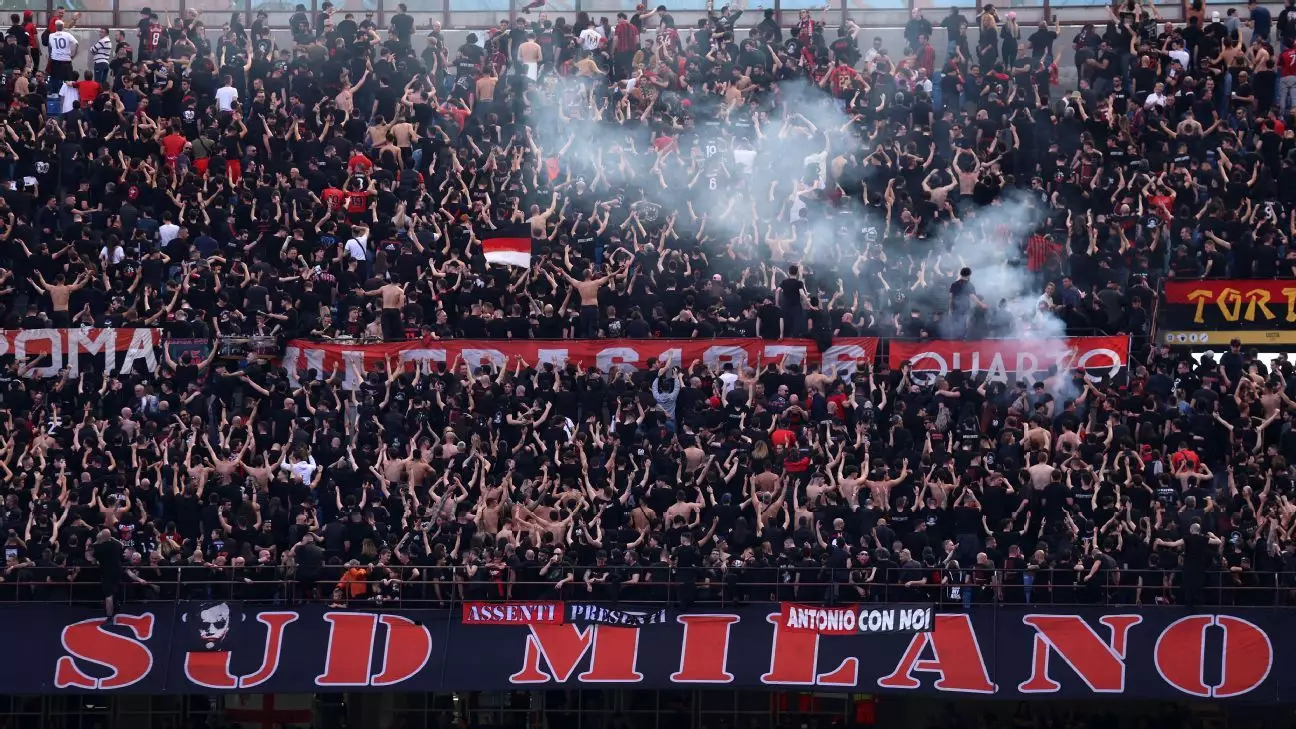In a significant move against organized crime, Italian authorities have arrested 19 individuals linked to the notorious ‘Ndrangheta mafia, directly impacting fan cultures of two of the most prominent Serie A football clubs—AC Milan and Inter Milan. This operation uncovers the alarming extent to which mafia influence has permeated into segments of professional sports, particularly in a city so passionately devoted to its football heritage.
The charges leveled against the arrested suspects include criminal association, extortion, and the use of violence as a means of negotiation and control. These allegations paint a troubling picture of how deeply entrenched criminal organizations can infiltrate legitimate business practices, even at the heart of one of Italy’s most beloved pastimes.
Recent investigations shed light on the extent of this infiltration, revealing connections between the organized crime syndicate and the business surrounding the iconic Giuseppe Meazza Stadium, better known as San Siro. The syndicate’s alleged attempts to control various commercial activities—ranging from ticket sales to food provisions—demonstrate an unhealthy intertwining of sports and criminal enterprise. The rise of the ‘Ndrangheta, often overshadowed by its Sicilian counterparts, has prompted concerns about its growing influence, particularly in major urban centers like Milan.
Arrested individuals included prominent figures from the local fan scenes, notably Luca Lucci and Renato Bosetti, who led the ultras groups supporting AC Milan and Inter Milan, respectively. The involvement of such high-profile fan leaders indicates a troubling normalization of criminal affiliations within passionate fan cultures, potentially turning stadiums into battlegrounds for mafia control rather than arenas of sport.
Italian football, known for its fervent fan culture, must now grapple with the implications of these revelations. Giovanni Melillo, Italy’s anti-mafia prosecutor, emphasized the urgent need to address the encroachment of organized crime into both professional and grassroots levels of soccer. His sentiments reflect a growing recognition that such infiltration is not merely an administrative issue but a clear and present danger to the integrity of the sport itself.
The investigative efforts have also drawn attention to the responsibility of the clubs involved. Milan’s teams have denounced any affiliations with the criminal elements charges against the arrested individuals. However, as articulated by prosecutor Marcello Viola, they are required to demonstrate tangible efforts in detaching from deviant subsets of their fan base to reclaim their reputations.
The arrests are a clarion call for both football authorities and fans alike to address the risks posed by organized crime. While measures have been put in place to combat violence and ensure safety within stadiums, this operation reveals fundamental gaps that require immediate attention. The continuing relationship between fervent support and criminality in such a beloved sport not only jeopardizes the future of football in Italy but also undermines the very essence of community and unity that sports are meant to foster.
As Italian authorities step up their fight against organized crime, the hope is that this operation serves as a watershed moment. More stringent oversight and proactive strategies could potentially cultivate a football culture free from the shadow of crime. For true fans of the sport, this may indeed be the necessary shift toward reclaiming the passion, excitement, and pure love that lies at the heart of football.

